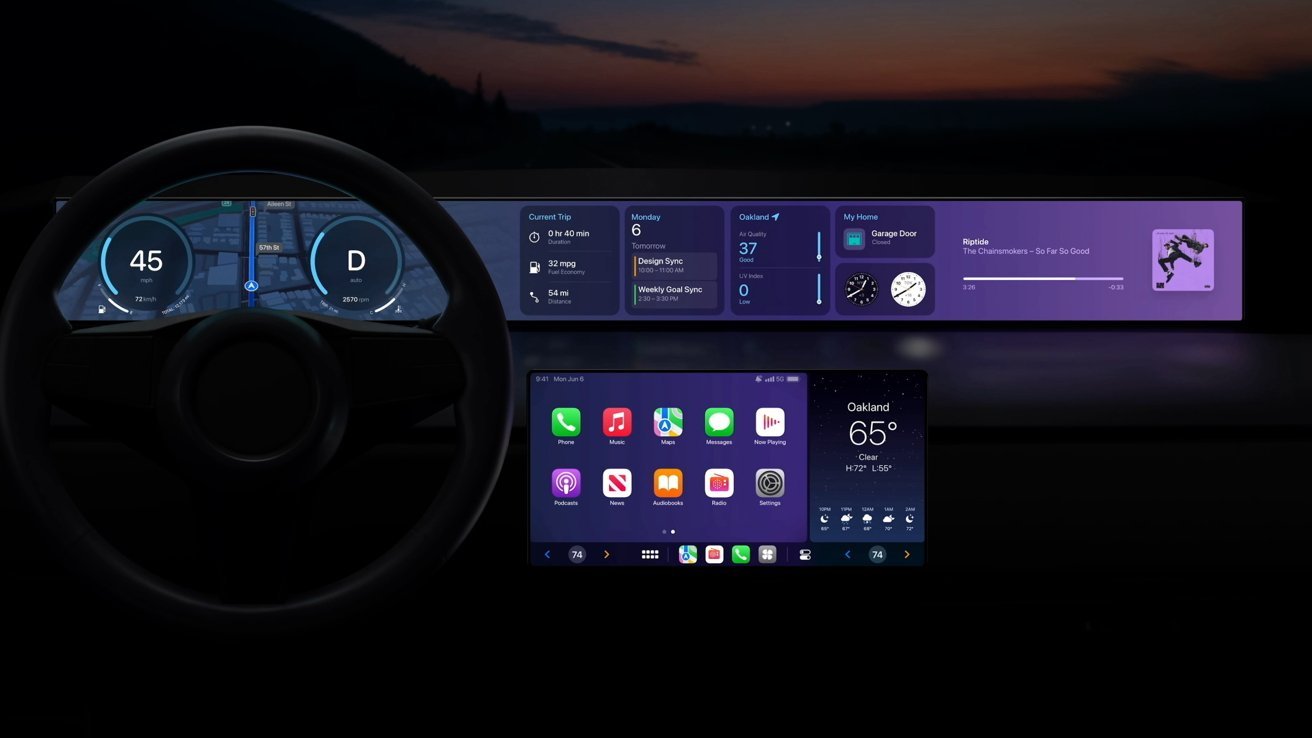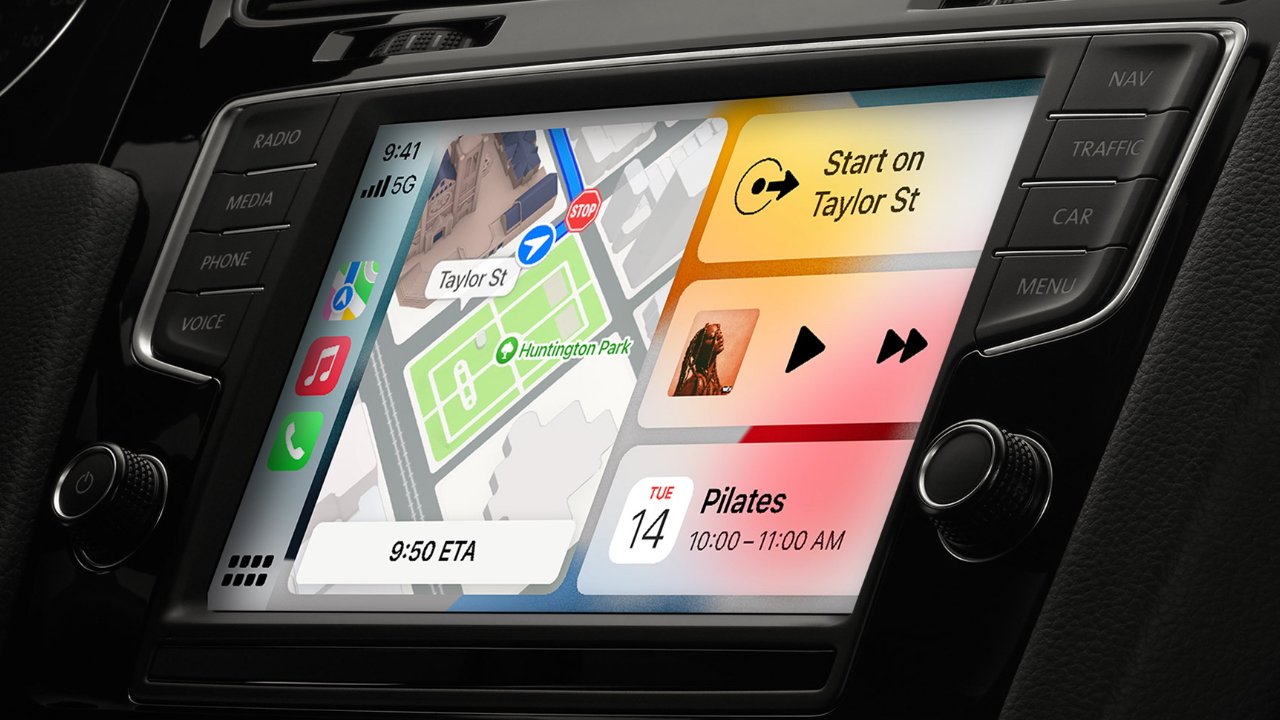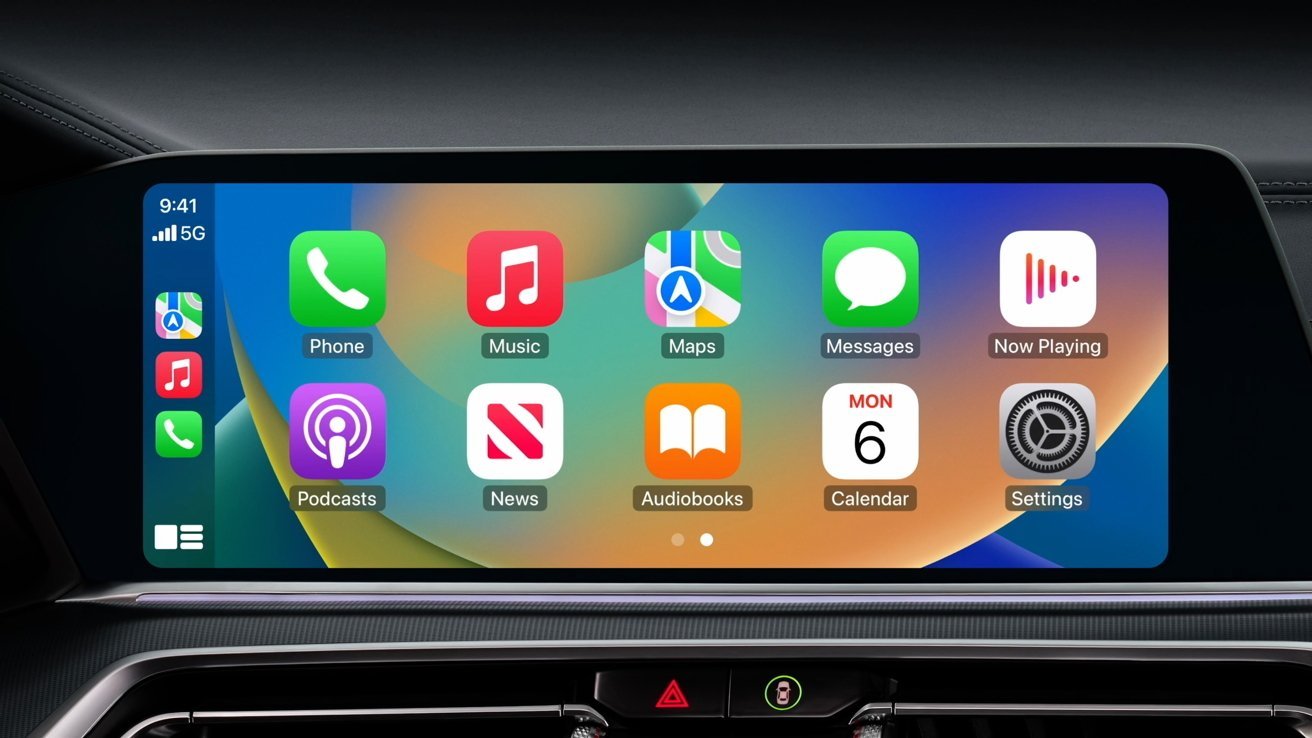Volvo to focus on value adds outside the infotainment system, will leave CarPlay alone
The Volvo CEO says Apple CarPlay is a value to customers, and its vehicles should focus on making the overall driving experience better, not on revenue generated from infotainment clusters.

The future of CarPlay
There's a trend among some vehicle manufacturers that is taking choice away from customers. Companies like GM and Tesla want users to have integrated experiences with the infotainment system, treating the vehicles almost like smartphones.
In an interview on The Verge's Decoder podcast, The Volvo CEO Jim Rowan spoke about the industry's shift to micro-transactions and monetization. He detailed how Volvo sees itself adapting different services to enhance the driving experience rather than ripping customer choice away.
Nilay Patel and Jim Rowan discuss the car industry, shifting to electric, charging networks, and more. However, we will focus on the portion about CarPlay and infotainment.
"You can either say, 'I'm going to provide a car that makes that a pleasurable, easy interface experience for you' or you're going to have a different operating system in the car than you have in your phone, and the phone is in people's hands much more often than they sit in the car," Rowan said about Volvo providing access to CarPlay and Android Auto. "The big difference is that you've got to be able to offer benefits through the application layer on the Android that's external to the car."
There was some confusion during the interview about Android in the vehicle versus Volvo OS. Simply put, customers can use a basic Android-run Volvo infotainment system, Android Auto, or CarPlay -- similar to many modern infotainment systems.

CarPlay provides iPhone users easy access to their favorite apps
That setup isn't going to change going forward. Instead, Volvo is going to focus on something called Volvo OS. A vehicle-wide operating system tuned to give customers more optionality and control through integrated services.
"While you're sitting in the car, that's fine, you're using Android Auto. You're listening to your music or whatever you're doing, fine," Rowan continues while explaining Volvo OS. "But what you really want the application layer to do with a smartphone is when you're not in the car, when I'm sharing my digital key with my friend because he wants to pick up my car from the stadium that I left there last night, or when I'm sharing my digital key with my kids, or when I'm offering insurance services to the customer."
The vehicle can provide users with services since new and upcoming Volvos have so many cameras and sensors. Providing insurance discounts due to safe driving is one, while another is having a tire-changing service for places that need snow tires.
"In Sweden, for example, you need to change your tires in the winter," Rowan explains, describing more of the Volvo OS concept. "I want to be sent a signal that says to me, 'Hey, listen, we're coming up on tire change season... Do you want us to come to your workplace, whip off the old tires, put on the winter tires, and take those summer tires away and store them for the next season?'"

Taking away CarPlay is taking away consumer choice
Such a service goes beyond just serving the driver ads in a center console. It adds value to the vehicle and makes Volvo owners feel more connected to the car.
Nilay Patel points out this is a different direction from that of other vehicle manufacturers. Many want to monetize the central console, especially once full self-driving becomes more common. Companies like Netflix might serve ads before playing a show in these driving movie theaters.
At least, for now, the Volvo CEO doesn't see that as the path forward.
"I don't think it's a viable strategy," concludes Rowan. "I think we're going to stick to what we're really good at, and that is building really good, safe cars with fantastic connectivity experience for customers that allows them to enjoy the benefits, when we get to full AD, of whatever they want to do with that time that they've gained."
The full interview contains more detail about Volvo's future plans and technology implementations. We can only hope companies like Volvo can influence the car market, and not the other way around.
Read on AppleInsider

Comments
The only reason I didn't get a Volvo back when I was buying my car was that, in North America, they'd eliminated the V series from the lineup in favour of the XC. Assuming that everyone in North America wants "big, rugged" cars. Personally, I much prefer a nice sleek sport wagon which doesn't have an extra hundred pounds of "ruggedized" body parts and big tires which cause more fuel consumption. So I went with a VW sport wagon instead. Glad to see the V series back in the lineup now, and I like Volvo's attitude towards custom infotainment systems, so I'll certainly look at them next time around.
Manufacturers think that they can create an ecosystem so that they remain the "interface" between the user and the car. They don't want people to "think Apple" when using their own cars, because that diminishes their brand value. The problem is, creating an ecosystem that people like (and trust) is a huge undertaking. The world is littered with failed ecosystems, and I doubt they can succeed where so many have failed. In the meantime, since most car manufacturers make some good/reliable cars nowadays, my main criteria for my next car will be how well it implements CarPlay. And if Apple builds a car, I know the CarPlay integration will be excellent.
nice to see some common sense remaining in some parts of the world.
However, as with BMW (who were charging an extra fee for CarPlay), I am currently holding off for now because of it.
I am pleased Volvo will included it. I don't want android watching my every move.
And even if an Apple product is assembled in mainland China, usually the company that Apple is subcontracting to manufacture its products is based in Taiwan. If you don't know, Taiwan scores much higher on the democracy charts than the USA scores.
Even if an iPhone says made in Taiwan or made in India, most of its parts and origin is China. It's just the reality we've created by outsourcing everything.
It's actually one of the most popular decision points for most consumers shopping for cars. I'm one of them. No CarPlay, no purchase.
There are some very good reasons why carmakers are reluctant to see Apple hook deep into their products and they are often the same reasons Apple uses to do the same with other companies.
As we move away from ICEs and into 'digital' cars with digital interfaces for users, they will become basically batteries on wheels.
Car manufacturers are well aware of the dangers of relying on outside influence and logically want to do their own thing.
You can vote with your wallet but if no one decides to run with Apple everything you want might be moot. At least until Apple maybe decides to release its own car and if they do, will the price make it worth it?
You can stick with CarPlay but it isn't really anywhere near competing products in terms of the access it has to the car.
Some manufacturers might decide to run with Apple if they have no way to create their own 'interfaces' to users. It is definitely an option, and is being employed successfully as I write, on many cars. A big difference though is that the providers are offering an entire platform of options that can go far beyond the software infotainment side (ICT, mini-datacenters, LiDAR, cameras, powertrains, charging technology, console units, AR-HUD...).
Carmakers can pick and choose exactly what level of integration those third parties get.
Apple is unlikely to offer that kind of flexibility.
That's not to say that manufacturers don't have a way to go to make the transition between the fallback and the user's choice easier.
Specially infotainment console design is just outdated. They don't know how to make it better and sometimes make it worse.